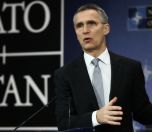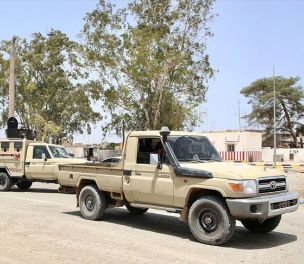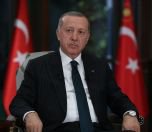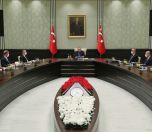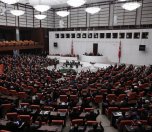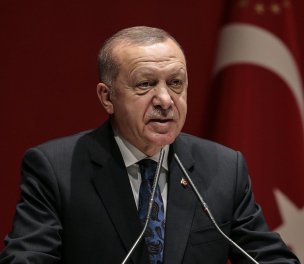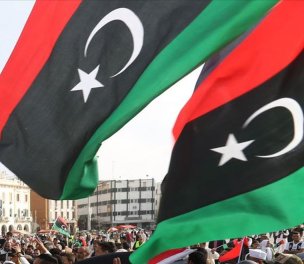Click to read the article in Turkish
Turkey's Minister of Foreign Affairs Mevlüt Çavuşoğlu, Minister of Treasury and Finance Berat Albayrak, National Intelligence Organization (MİT) head Hakan Fidan and Presidential Spokesperson İbrahim Kalın met with Libya's UN-recognized Government of National Accord (GNA) Prime Minister Fayez al-Sarraj, Foreign Minister Mohammed Siyala and Chair of High Council of State Khalid al-Mishri in Tripoli, Libya yesterday (June 17).
As reported by the state-run Anadolu Agency (AA), "Libya warmly welcomed the visit by a Turkish delegation to the country," Minister Çavuşoğlu has said at a press conference following the meeting.
"Our visit received a great welcome in Libya. The purpose of the visit is clear: it is to strongly reiterate that Turkey stands with Libya," Çavuşoğlu has said and added, "We also discussed how the two countries can improve bilateral relations." Çavuşoğlu has also stated the following:
"As you know, we have signed a memorandum of understanding with Libya about restricting maritime jurisdiction. We have discussed all of the steps to be taken in the Mediterranean in terms of energy. We talked about what is to be done to achieve a permanent ceasefire and a political decision. We also discussed how we will continue our work under the framework of the UN. We evaluated the steps to be taken within the international community."
Since the ousting of Muammar Gaddafi in 2011, two seats of power have emerged in Libya: One in eastern Libya, the Libyan National Army (LNA) led by Khalifa Haftar, and the other in Tripoli, which enjoys UN and international recognition, the Government of National Accord (GNA).
Economic ties between Turkey and Libya
Reminding that mass graves were found in the city of Tarhuna in Libya, Çavuşoğlu has said that "Turkey supports Libya's endeavors to take this issue to the International Criminal Court."
"These inhumane massacres should be questioned, and those responsible should be taken to the court," he has underlined further.
Turkey and Libya's economic partnerships were also discussed during the visit, Minister Çavuşoğlu has informed the reporters:
"Turkish firms' business activities were cut short in Libya due to the war. There are projects, investments that need to be completed. We therefore also discussed the economic aspects of our relations."
"We have visited our teams in the region who are there for training and consultancy as part of our memorandum of understanding. They are working there day and night. I congratulate them," Çavuşoğlu has indicated further.
Libya also cited in National Security Council StatementIn the statement issued after the meeting of the National Security Council on June 2, it was announced that "the military consultancy services provided by Turkey to Libya's United Nations (UN)-recognized legitimate government, which endeavors to protect Libya's political unity and territorial integrity and to ensure peace and tranquility across the country, will be continued." "The international community is called on to take a principled stance against shady groups, which usurp the will of Libyan people and target Libya's legitimate government," the statement read further. Since the ousting of Muammar Gaddafi in 2011, two seats of power have emerged in Libya: One in eastern Libya, the Libyan National Army (LNA) led by Khalifa Haftar, and the other in Tripoli, which enjoys UN and international recognition, the Government of National Accord (GNA). The government and western parts of the country have been under attack by Haftar's forces since April 2019, with over 1,000 killed. On November 27, 2019, Ankara and Tripoli reached two separate memorandums of understanding (MoU), one on military cooperation and the other on maritime boundaries of countries in the Eastern Mediterranean. Following the military cooperation deal, President and ruling AKP Chair Recep Tayyip Erdoğan said Ankara might consider sending troops to Libya if the Tripoli government made such a request. Having convened to discuss a motion on military deployment to Libya in early January 2020, the General Assembly of the Parliament of Turkey has passed the motion by a vote of 325 against 184. |
(EKN/SD)




.jpg)
